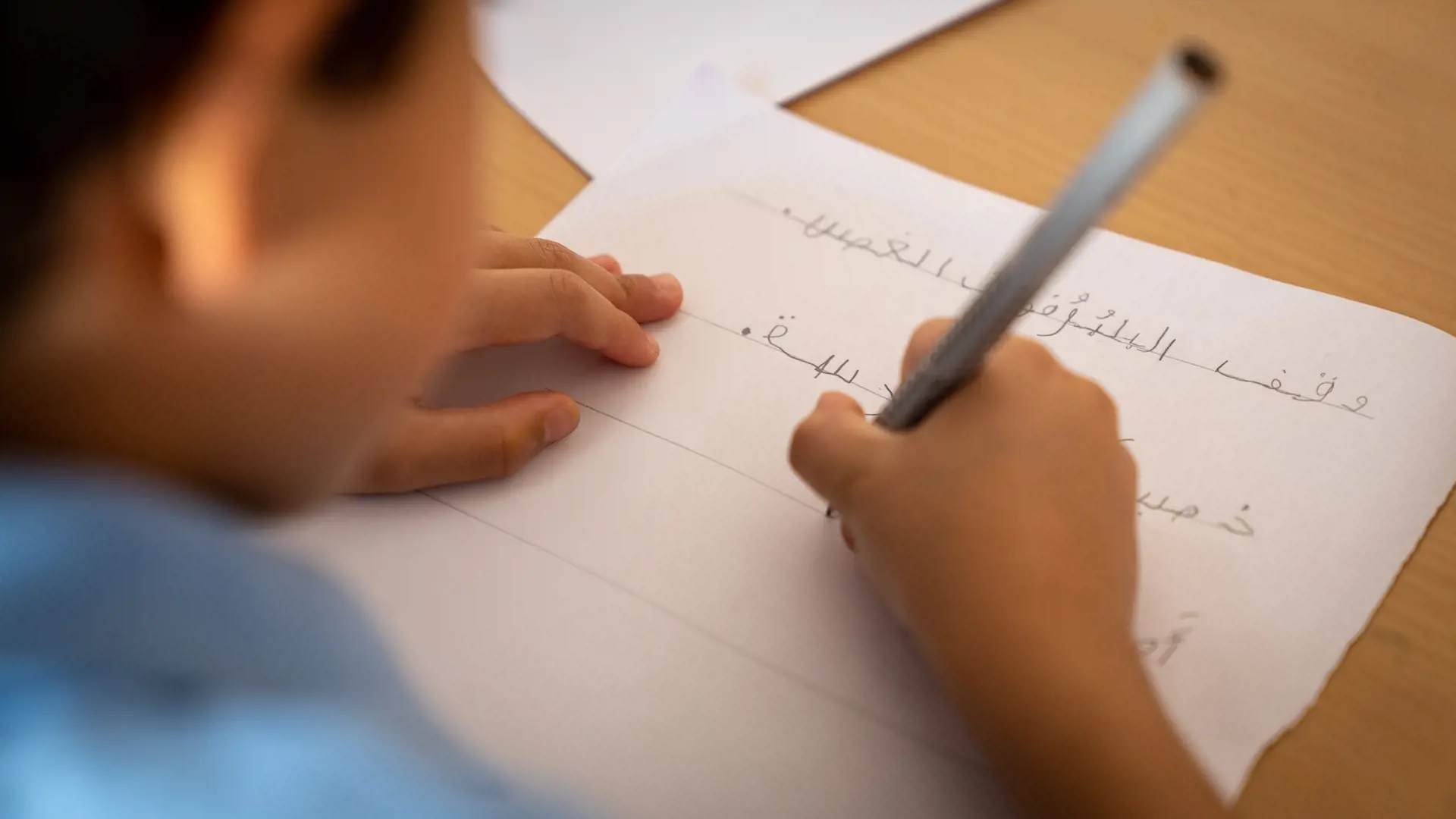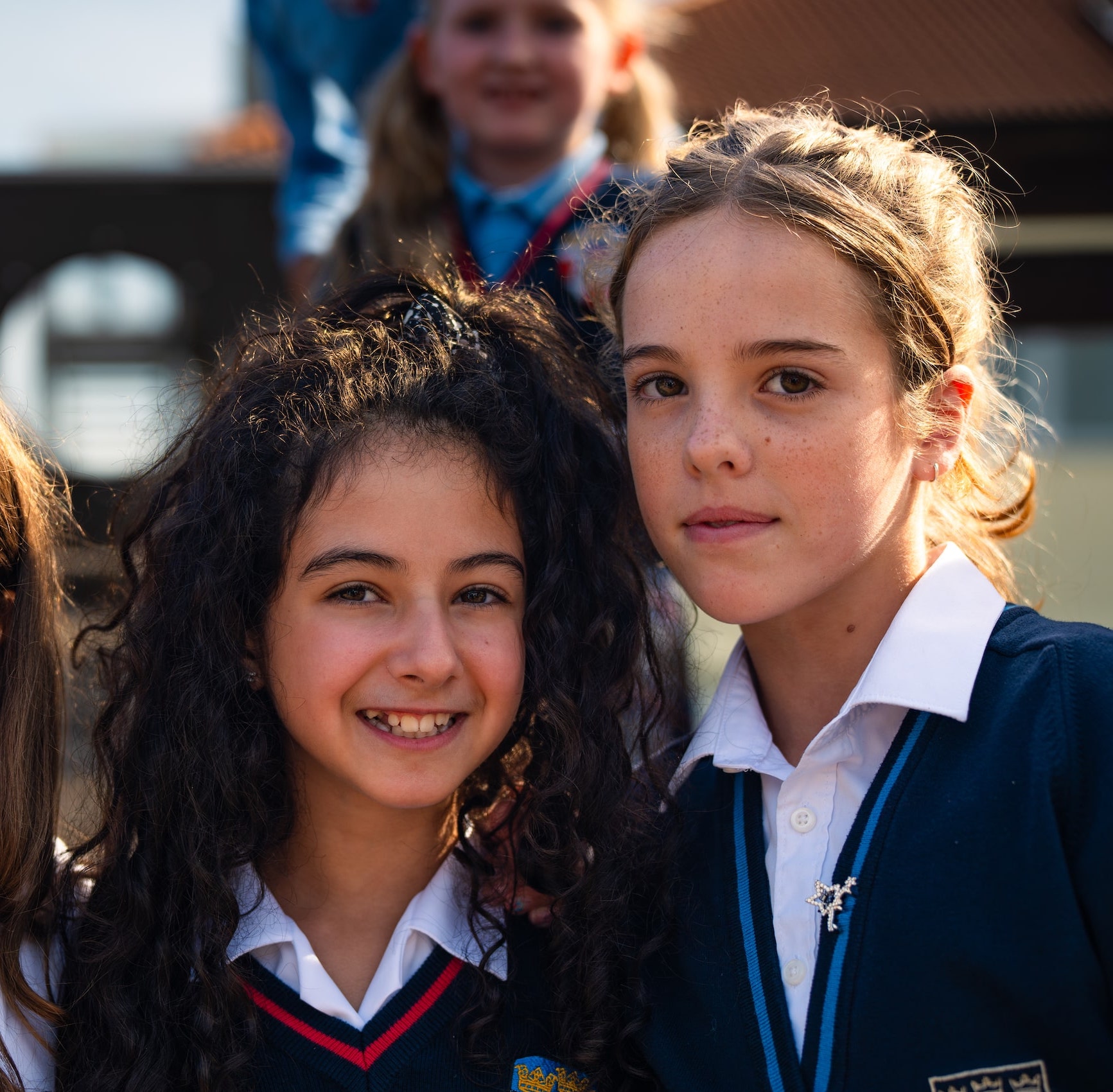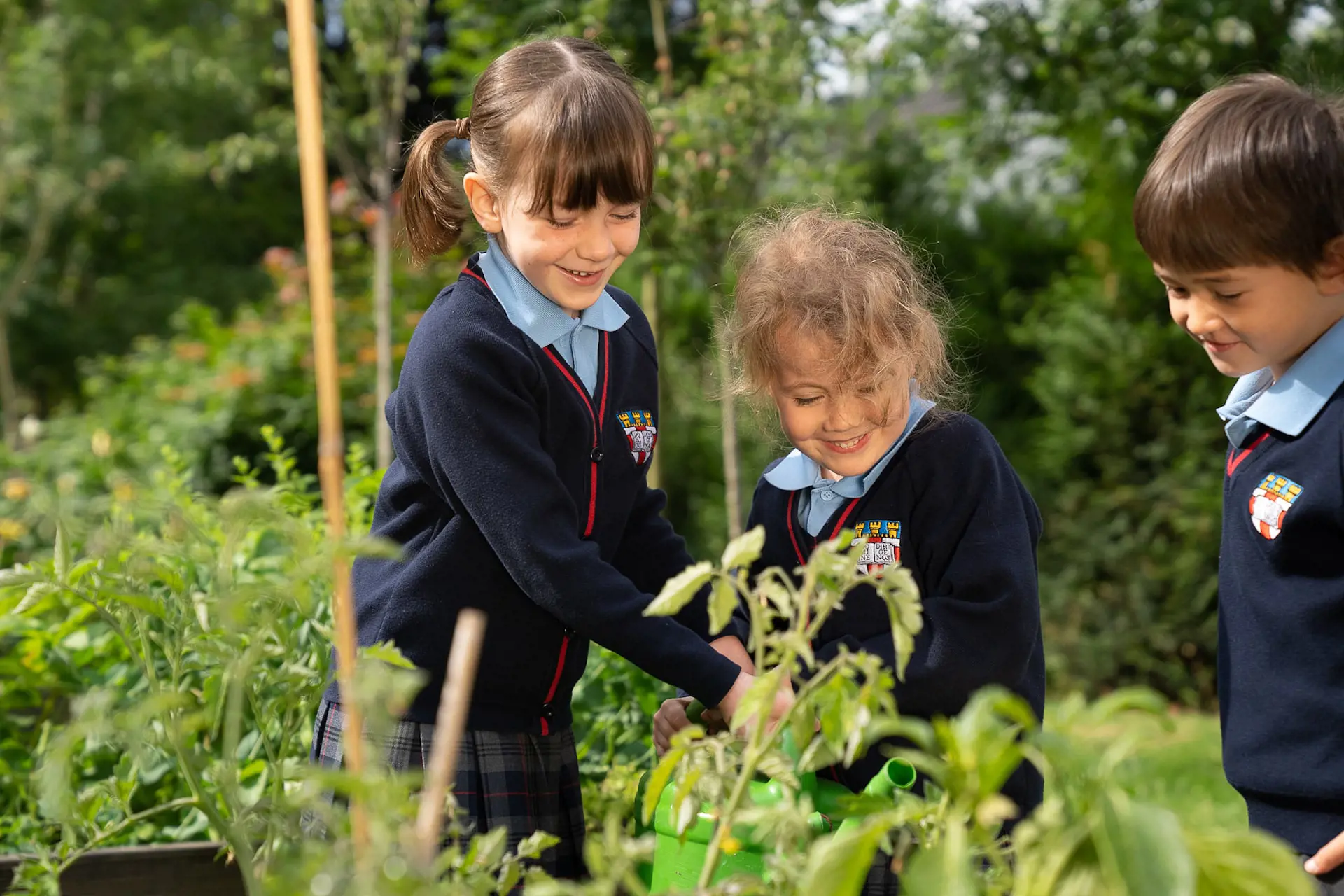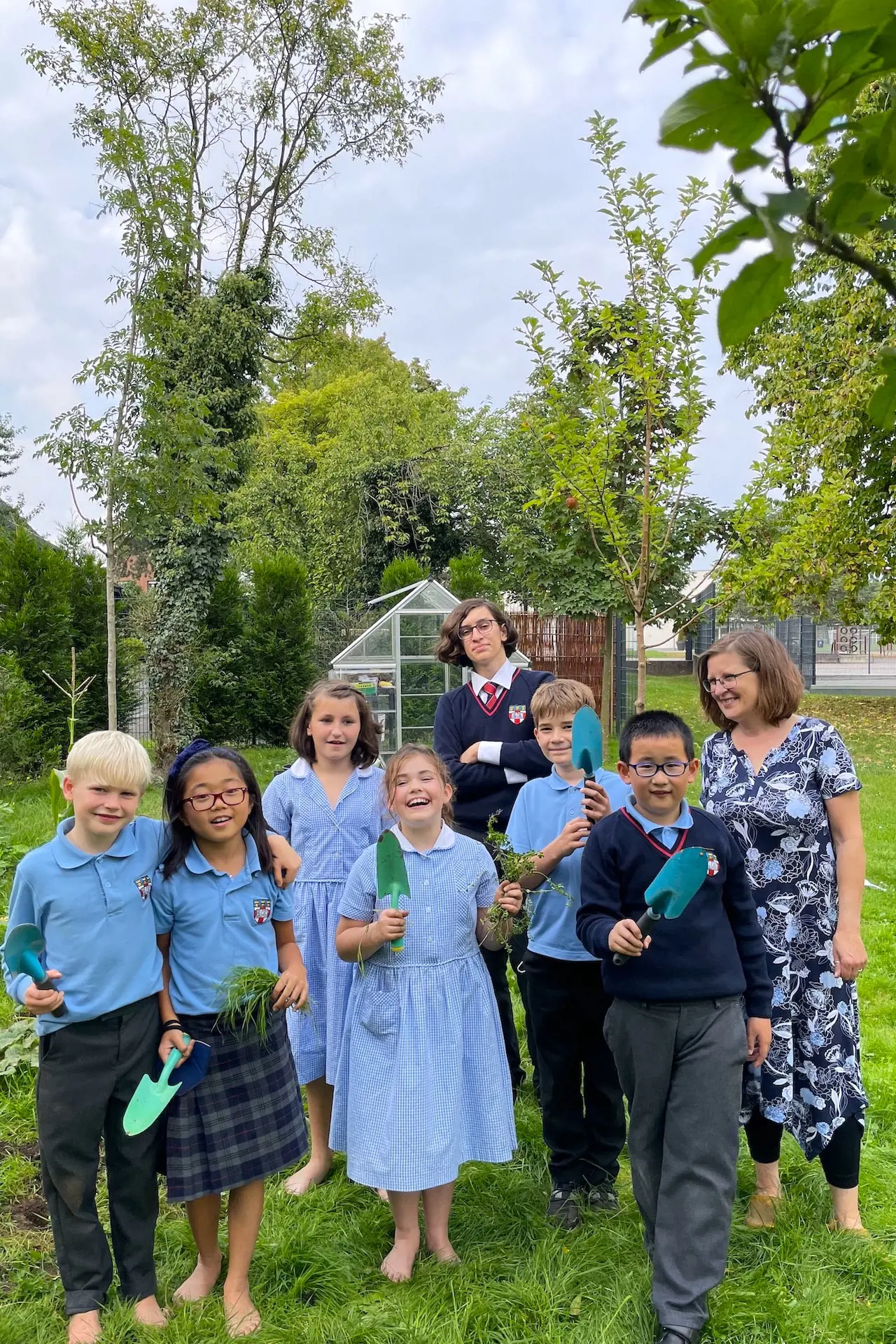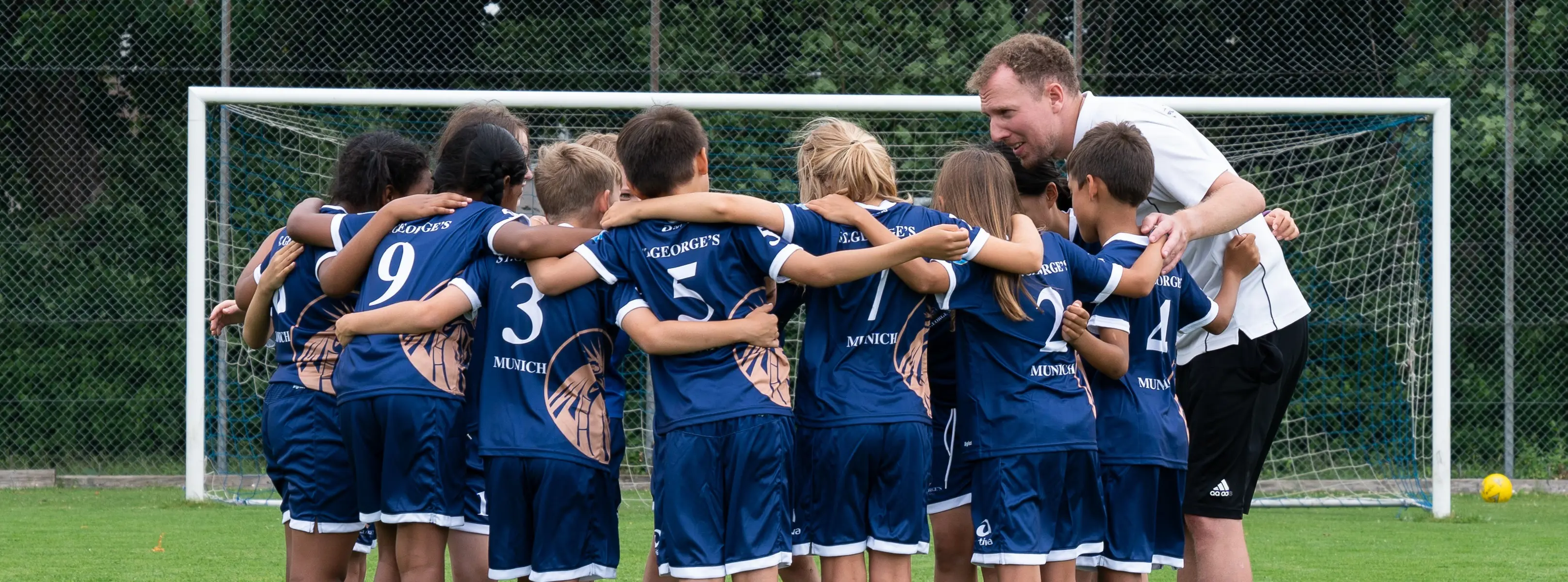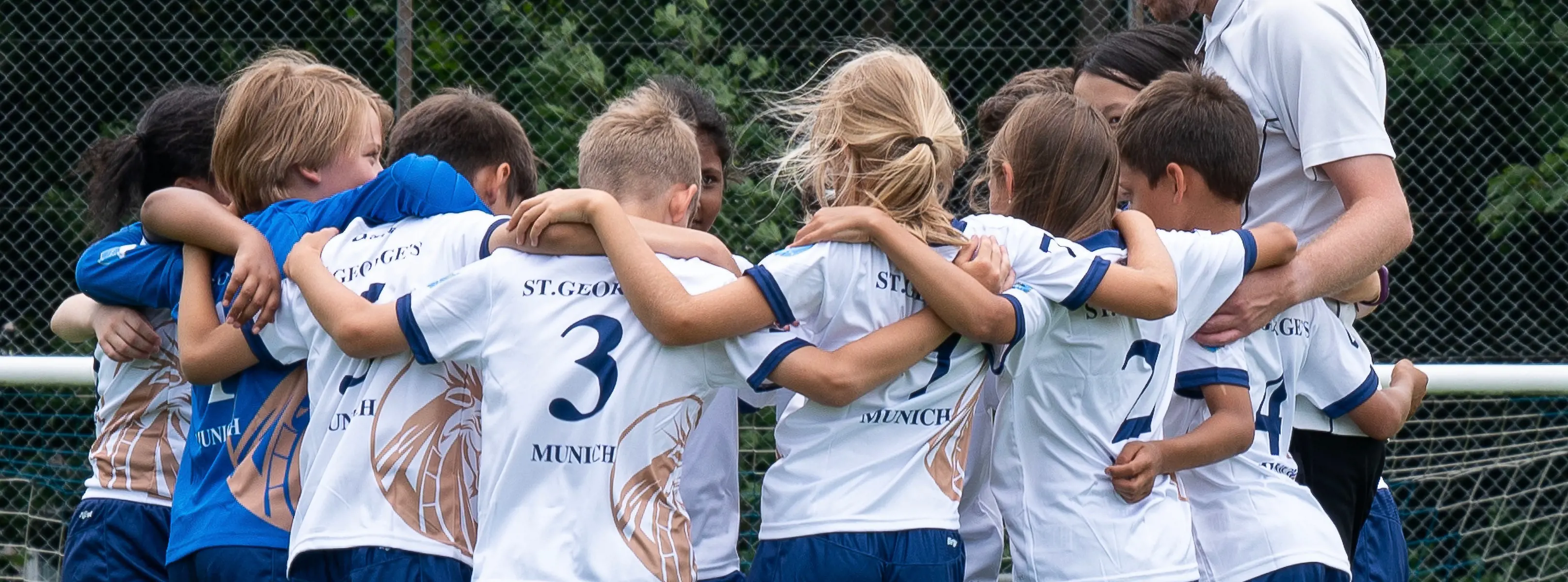Sustainability education matters
Author: Sally Lewis | Author Title: Marketing expert & ECO-School Programme SGSD | Publication Date: December 2023
Our school in Düsseldorf Rhein-Ruhr has been officially recognized as an Eco-School, awarded by Umweltschule in Europa Internationale Nachhaltigkeitsschule for the second year in a row. This prestigious recognition is a testament to the dedication and hard work of our students and teachers, who are driven to make a positive impact on the environment. The Eco-Schools initiatives are a perfect example of the broader values that define St.George's as a responsible member of the global community.
Why sustainability education matters
Teaching children about sustainability is important, as it equips them with the knowledge, skills, and values needed to address global challenges, make responsible choices, and actively contribute to building a more sustainable and equitable world.
Sustainability education fosters:
- Global awareness: Learning about sustainability promotes a sense of global citizenship. Children gain an understanding of the interconnectedness of the world and the impact of human activities on the environment. It fosters a sense of shared responsibility to address global challenges, encouraging them to think beyond their immediate surroundings.
- Environmental stewardship: Sustainability education instills awareness of issues such as climate change, pollution, deforestation, and loss of biodiversity, encouraging a sense of responsibility for natural resources and the planet.
- Long-term thinking: Sustainability education encourages a forward-looking perspective. Children learn to consider the consequences of their actions on future generations and understand the concept of intergenerational equity, promoting a more sustainable approach to life.
- Critical thinking skills: Sustainability issues are often complex and require critical thinking skills to understand and address. Teaching children about sustainability challenges them to think critically, analyze information, and develop problem-solving skills - important attributes for addressing the complex challenges of the modern world.
- Resource conservation: Understanding the finite nature of resources encourages children to adopt more sustainable consumption habits. They learn to appreciate the value of resources, reduce waste, and make choices that have a smaller ecological footprint.
- Health and well-being: Many sustainability practices, such as eating locally-produced food and reducing exposure to harmful chemicals, have direct benefits for personal health. Teaching children about sustainable living can contribute to a holistic understanding of well-being and healthier lifestyles.
- Social responsibility: Sustainability education often extends beyond environmental issues to include social and economic aspects. Children learn about fair trade, social justice, and the importance of ethical practices, fostering a sense of social responsibility.
- Adaptability: As the world faces environmental changes and challenges, it's essential for children to learn about adaptation and resilience. Understanding sustainability prepares them to cope with changes and contribute to building a more resilient society.
- Empowerment: Learning about sustainability empowers children by showing them that their actions matter. They understand that they can contribute to positive change through everyday choices and behaviors, fostering a sense of agency and empowerment.
- Interdisciplinary learning: Sustainability education often integrates various disciplines, including science, geography, economics, and social studies. This interdisciplinary approach provides a holistic understanding of complex issues, preparing children to navigate the interconnected challenges of the real world.
A student-led journey towards sustainability
Our students are at the heart of the Eco-School movement. Through their initiative and determination, they have spearheaded various sustainability projects aimed at raising environmental awareness and reducing our ecological footprint. These projects, submitted for assessment every year, serve as a testament to the power of collective action and the real difference that individuals can make when they work together. Here is a taste of some of the recent projects that have been implemented, showcasing their enthusiasm for environmental responsibility and sustainability.
| Biodiversity |
|---|
|
One of our key initiatives has been the promotion of biodiversity within our school grounds. Our students have taken the initiative to plant lavender and wildflower meadows, transforming our campus into a vibrant haven for local wildlife. These areas not only enhance the natural beauty of our school but also provide essential habitats for insects and other creatures. |
| Encouraging Pollinators |
|
To support the crucial work of pollinators, our students have constructed insect hotels. These charming abodes attract bees, butterflies, and other pollinators, helping to maintain the delicate balance of our local ecosystem. Our students recognise the vital role these creatures play in sustaining our environment and have taken it upon themselves to protect them. |
| Composting Systems |
|
Our composting system has not only reduced waste but has also produced nutrient-rich compost that benefits our gardens. In addition, our students are growing hydroponic vegetables in an indoor garden, demonstrating that sustainability can be achieved even in urban environments. |
| Plastic Recycling |
|
In a world grappling with plastic pollution, St.George's has intensified its efforts to recycle plastic materials. Our students have been at the forefront of these efforts, making our school a role model in responsible plastic disposal. We believe that addressing this global issue begins at the grassroots level, and our students have taken the lead. |
Mr. Troilett, the School Director of St.George’s in Düsseldorf Rhein-Ruhr, couldn't be prouder of our students and their remarkable achievements. He shares,
"We are proud to be recognized as an Eco-School, and to get the award this year again. This achievement is a testament to the tireless efforts of our students and staff. They care about their environment and set good examples for us all to follow. Importantly the ideas are suggested and driven by the students. It is their world, and they are trying to make it a better place, and I am very proud of their actions and achievements."
The journey continues
The students of St.George's are not resting on their laurels. They are already planning new projects to maintain their Eco-School certification, demonstrating their commitment to taking responsibility for the planet and our future. The future is brighter with our dedicated young leaders paving the way for a more sustainable world.
Our school's culture fosters a sense of community where every individual is encouraged to make a positive contribution beyond our shared values. This passion is the driving force behind our efforts and empowers us to accomplish what we set out to achieve.
St.George's School not only educates but also inspires its students to lead a life that makes a positive impact. Together, we are shaping a brighter, greener future for all.
Find out more about the global Eco-Schools programme:

